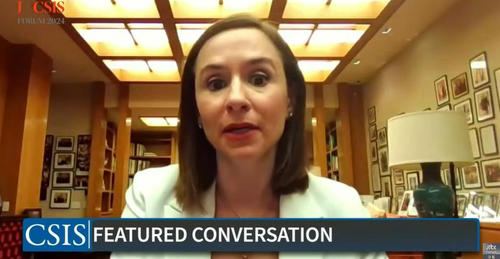The United States is considering implementing “interim steps” towards North Korea’s denuclearization, according to a statement from a White House official on Monday. Mira Rapp-Hooper, the U.S. National Security Council senior director for East Asia and Oceania, expressed Washington’s readiness to engage in discussions with North Korea about reducing threats. She emphasized that while the U.S. remains committed to the complete denuclearization of the Korean Peninsula, it is open to considering interim measures that enhance regional and global security. Rapp-Hooper made these remarks during a forum in Seoul organized by South Korea’s JoongAng Ilbo newspaper and the Washington-based Center for Strategic and International Studies (CSIS).
These statements come amid heightened tensions caused by North Korea’s recent weapons tests, including the launch of a solid-fuel hypersonic missile and the testing of what it claims to be an underwater nuclear attack drone. The U.S.-North Korea denuclearization negotiations have been at a standstill since the no-deal Hanoi summit between former U.S. President Donald Trump and North Korean leader Kim Jong-un in 2019.
Matt Pottinger, a former U.S. deputy national security adviser, suggested that North Korea’s recent aggressive rhetoric and military actions, including labeling South Korea as its “principal enemy,” are likely tactics aimed at increasing pressure for negotiations rather than preparing for war. Pottinger argued that these actions align more with historical patterns of manufacturing crises to achieve strategic objectives. He highlighted Kim Jong-un’s concurrent efforts to ship ammunition and weapons to Russia, which he believes contradicts preparations for war.
Pottinger expressed concerns about the growing military cooperation between North Korea and Russia, describing it as indicative of a broader pattern of aggression. He warned of the emergence of a “new axis” of aggression between Pyongyang and Moscow, suggesting potential collaboration on strategic objectives beyond the Korean Peninsula.
